I have been spending more time in the garden this year, much of it doing simple little jobs which allow my mind to wander while my hands keep busy pulling up weeds, or pruning. I am often reflecting on a book I am reading and at the moment, as is normal for me, there are at least two. The fictional one is ‘Post Captain‘ by Patrick O’Brian and one of the non-fictions ones is ‘The Organized Mind‘ by Daniel Levitin. The book is a mixture of neuroscience, explaining how the brain works, and some practical applications to help us cope in a world which has outpaced the one our brain evolved for. We now expect to keep track of hugely more information than our hunter/gatherer ancestors would encounter, and one way we do this is to move information from our minds to external storage – and this blog post is moving garden musings from my brain to the external storage of the Internet. Another thing I learned from the book is that the brain has two basic modes, a mind wandering or daydreaming mode and the attentional mode, where your brain is focussed on a single thing. When I am musing in the garden my mind is in daydreaming mode, making connections between things, while automatic bits of my brain take care of the routine tasks.
Without my concious mind being aware of it, my attentional system is keeping track of my environment, making sure I do not get too spiked by the roses etc – and only demanding attention if there is something that might need attention. This morning it was courgettes. This spring I planted four courgette plants, fairly closely spaced, and they are being very productive.
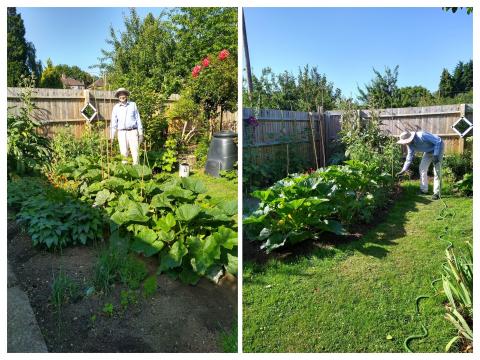
I had been reflecting on the news, which for somebody who is shielding due to being highly vulnerable to the virus was a bit of a mixed bag. The hopeful news from the medical science side is balanced by the possibility of a second wave, and the way that, for some people who are not shielding, the measures to keep the spread of virus down are regarded as an annoyance to be evaded.
Suddenly I thought ‘I need only have two courgette plants next year, four really is too many for us’. Planning for the future is an inherently optimistic act, and this looking forward in hope is one of the benefits of gardening. I started to think about the all the good things that, for me – for us, about our garden and the blessings it brings.
Seasons
Gardens bring us in touch with (or force us into awareness of) the seasons. As Ecclesiastes wrote “To every thing there is a season, and a time to every purpose under the heaven” – so the simple act of being in the garden takes my thoughts in this direction. Of particular relevance to the response to Covid-19 is
a time to embrace, and a time to refrain from embracing
Ecclesiastes 3:5
We are, much as we may feel otherwise, in a time to refrain from embracing, at least until we can be sure we will not inadvertently harm the person being embraced.
A Rose for Ecclesiastes
Several writers have used Ecclesiastes as a framework to weave into their stories. One of my favourite science fiction authors, Roger Zelazny, wrote ‘A Rose for Ecclesiastes‘, featuring a Martian race, dying out as they see the no future, and presents them with a translation of Ecclesiastes into Martian, and a rose, as something new under the sun.
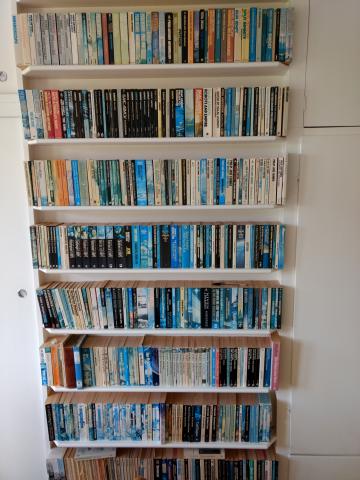
Alternativity
Wesley Memorial Church numbers some brilliant creative people amongst its membership, and one product of this are several musicals. One of these, Alternativity, commences
Vanity of vanities,
All of life is vanity;
It goes from here to become a great message of hope, complete with varied musical numbers, and pyrotechnics.
Turn, Turn
The Byrds turned the words of Ecclesiastes into a song, focussing on the need for a time of peace.
Compost heaps
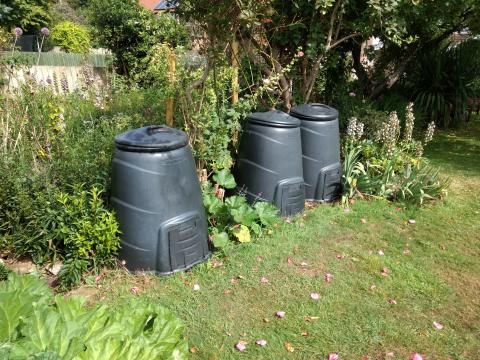
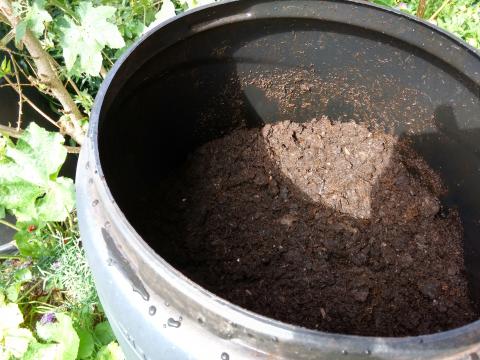
I am pleased by our compost heaps, which use the 3 bin system. Like most bits of this blog the original idea was not mine, but nonetheless, seeing them working gives me pleasure. In many ways they are a metaphor for this blog, taking scraps from lots of different sources, trying to keep the right balance of ‘green’ and ‘brown’ material, which fits with my thoughts on the importance of diversity, and mixing them, to end up with something where ideas (or plants) can grow.
During the writing of this post, one of the Kindle Daily Deals was ‘Gardening – Philosophy for Everyone: Cultivating Wisdom’, so that has joined the queue of books to be digested and added to the mulch.
Ironically, given that I have felt for some time that one of the threats to our society is the growing channelling of our view of the world through a shrinking number of corporations, a recent Kindle purchase was ‘The Age of Surveillance Capitalism‘ by Shoshana Zuboff (incidentally one of Barack Obama‘s Favourite Books of 2019). (I am a bit conflicted about whether I should buy so many books on Kindle)
Respect your opponent
One thing which does not go into the compost bins is bindweed – another is dandelions. As a Scot, I was brought up with Robert the Bruce and the Spider as a model of persistent endeavour, but anyone who has continued, like a magician pulling out endless streams of ribbon, to try to get bindweed out, must end up with a respect for its tenacity. I suspect musings on weeds covers such a range that they must be relegated to a whole new post, as yet unwritten.
Digging
Sometimes, when the world seems too full of stress, or conflict, the best solution is a bit of simple physical labour.
Kipling
I shared with my mother and Mary’s mother an interest in Mythology. Mary’s mother, Annie Schofield, was particularly interested in, and a published essayist on Ted Hughes. Origin Myths are a key part of Mythology, and Ted Hughes imagined some in ‘How the Whale Became’. Kipling’s take on Origin Myths was the Just So Stories, of which ‘How the Camel got his Hump’ (which my father could quote to me), is particularly relevant.
The cure for this ill is not to sit still,
Just So Stories
Or frowst with a book by the fire;
But to take a large hoe and a shovel also,
And dig till you gently perspire;
And then you will find that the sun and the wind.
And the Djinn of the Garden too,
Have lifted the hump—
The horrible hump— The hump that is black and blue!
Candide
Garden’s crop up a lot in Voltaire’s novel Candide, which concludes
Excellently observed,” answered Candide; “but let us cultivate our garden.
Candide (English translation)
Garden fences
Our garden has a fence, rather than a wall, but – as The Organized Mind explains, peoples brains lump things together at a conceptual level, hence I find myself musing on fence-like things, although with a reflection that we presumable have good fences, as “good fences make good neighbours“, and we have excellent neighbours. As usual the concept also reminds me of a book, in this case Divided, by Tim Marshall.
Paradise Lost
Although Eden had a ‘verduous wall’ – i.e. a hedge, this still acted as a divide Eden from ‘not Eden’ – and eventually Adam and Eve have to leave, and venture out into the world. The ending of Paradise Lost is one of the bits of poetry which sticks in my head, and I find it quite comforting.
Som natural tears they drop’d, but wip’d them soon;
Paradise Lost (book 12)
The World was all before them, where to choose
Thir place of rest, and Providence thir guide:
They hand in hand with wandring steps and slow,
Through Eden took thir solitarie way.
The Selfish Giant
Early on in lockdown, many kind friends and neighbours helped us by shopping for us, in many cases fitting this in with working from home and looking after young families. It was a great pleasure, later on, to be able to invite them and their children into our garden, where Mary has made a trail of things to find, and we could enjoy their excitement from a safe distance. The transformation our garden, and the joy of sharing it reminded me of The Selfish Giant, by Oscar Wilde.
Connections and continuity
One of the joys of a garden can be be the way it connects to people and places. Of the vegetables we are growing, some were grown by Mary while the rest came from friends and neighbours, so they all connect to people.
Several of the plants in our garden came from our parent’s gardens.
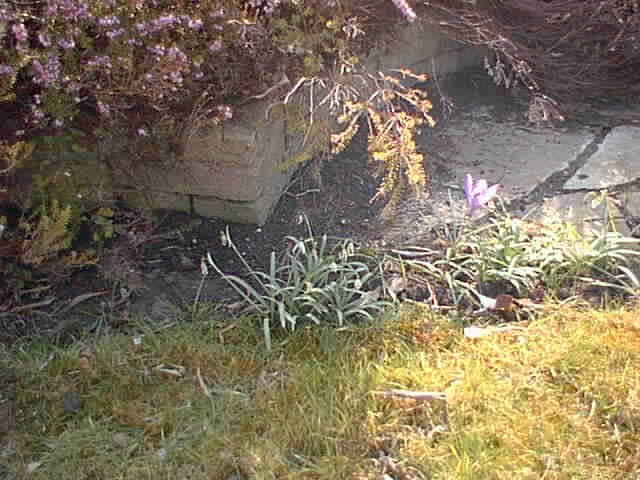
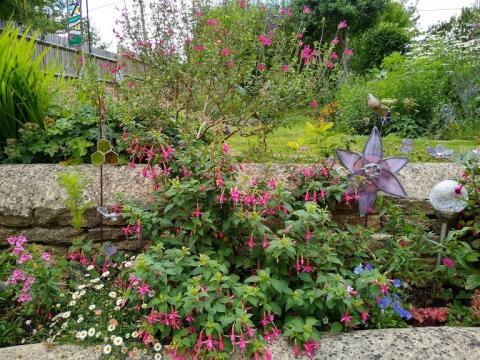
Both of my parents, and my grandparents were keen gardeners, although I appreciate gardening more now that when I was younger, when my siblings and I were used as unskilled garden labour – ‘Pick a punnet of raspberries before tea’.
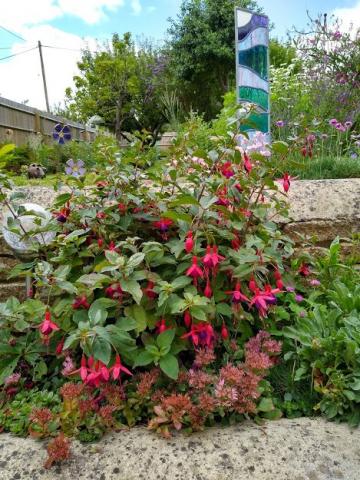
Mary’s mother was a keen gardener, and grew a wide range of fuchsias in her compact, but well tended garden. Mary has followed in her footsteps.

Mary’s father commanded a Motor Launch (M.L. 121) during WW2, and had many exciting adventures, including carrying Gracie Fields through a storm off Italy. He also made several life-long friends. The son of one of those friends dug our centre bed, thus all our parents have connections in the garden.
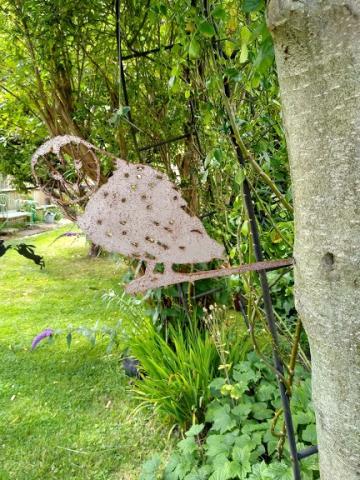
Several of the plants and sculptures in the garden are presents from my siblings – so many that this owl must act as representative for them all.
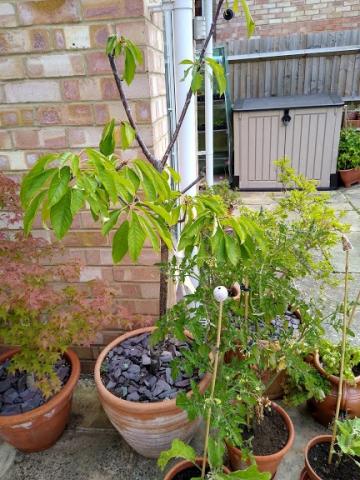
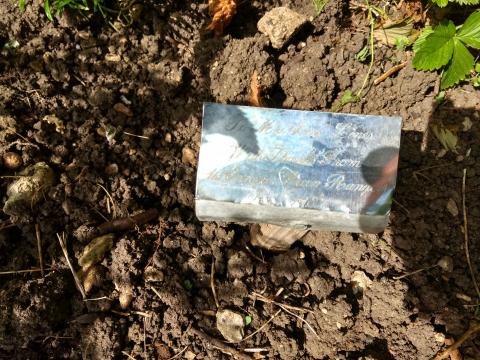
My mother was a Guider in many places, including running the 74th City of Edinburgh for many years, and starting the Juniper Green Ranger Guides. This plaque was given to her when she ‘retired’ from guiding in Edinburgh – although she ended up running a guide company in Somerset, having only planned to be a helper.
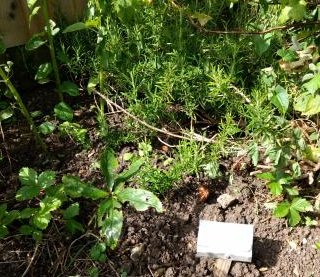
The house in Edinburgh where I spent most of my childhood, had a rosemary bush growing outside the front door. When my parents moved to Somerset they took a cutting of that rosemary with them, planting it outside the front door, and this is a cutting from that. On significant departures, such as going off to University, my mother would give us a sprig of this rosemary, quoting Ophelia “There’s rosemary, that’s for remembrance”.
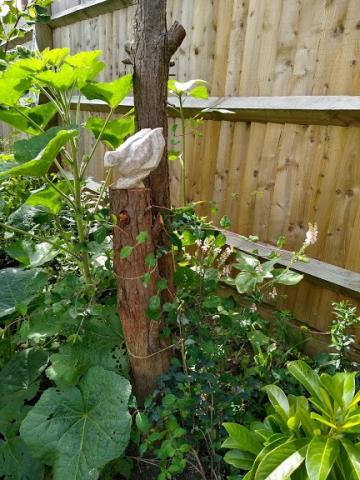
The chick is a resin cast sculpture by Vital Peeters, who made the Amazing Love stained glass window in Wesley Memorial Church, Oxford. Amazing Love is also, not by coincidence, the name of another of the Musicals written and performed at Wesley Memorial, and was also the inspiration for the article on Amazing Love, Demographics and Mass Migrations.
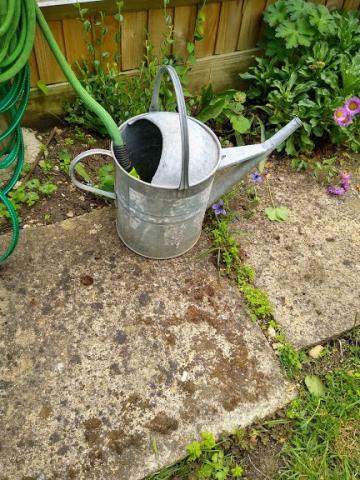
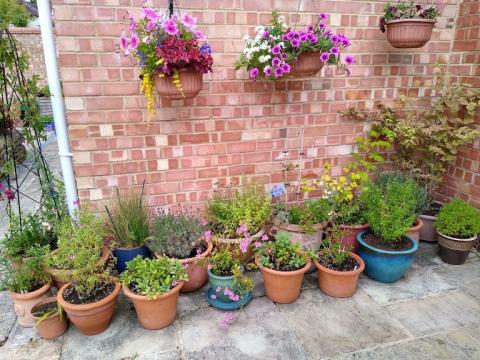
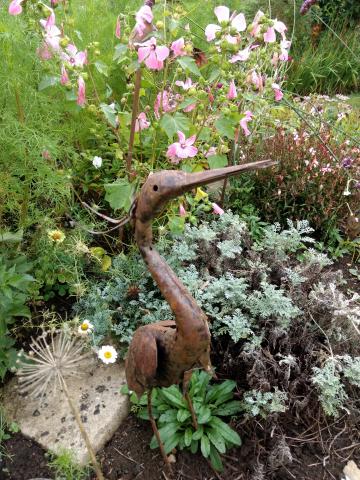
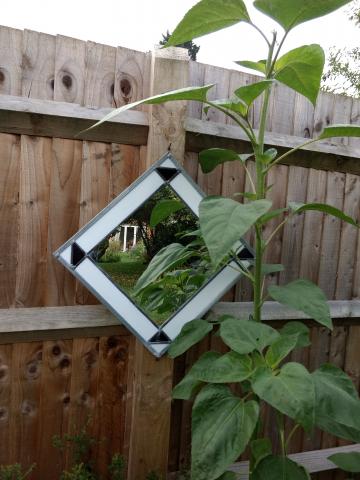
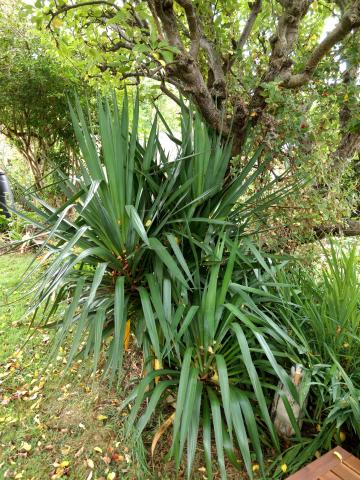
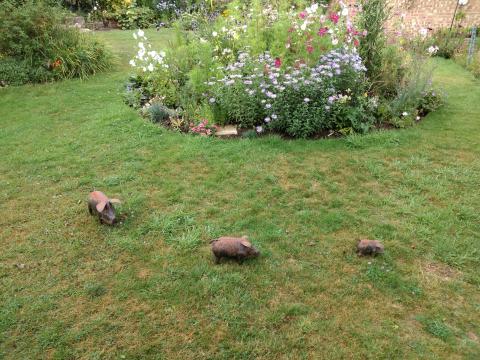
There are far too many special things in the garden to describe here, so like Candide I should conclude il faut cultiver notre jardin.